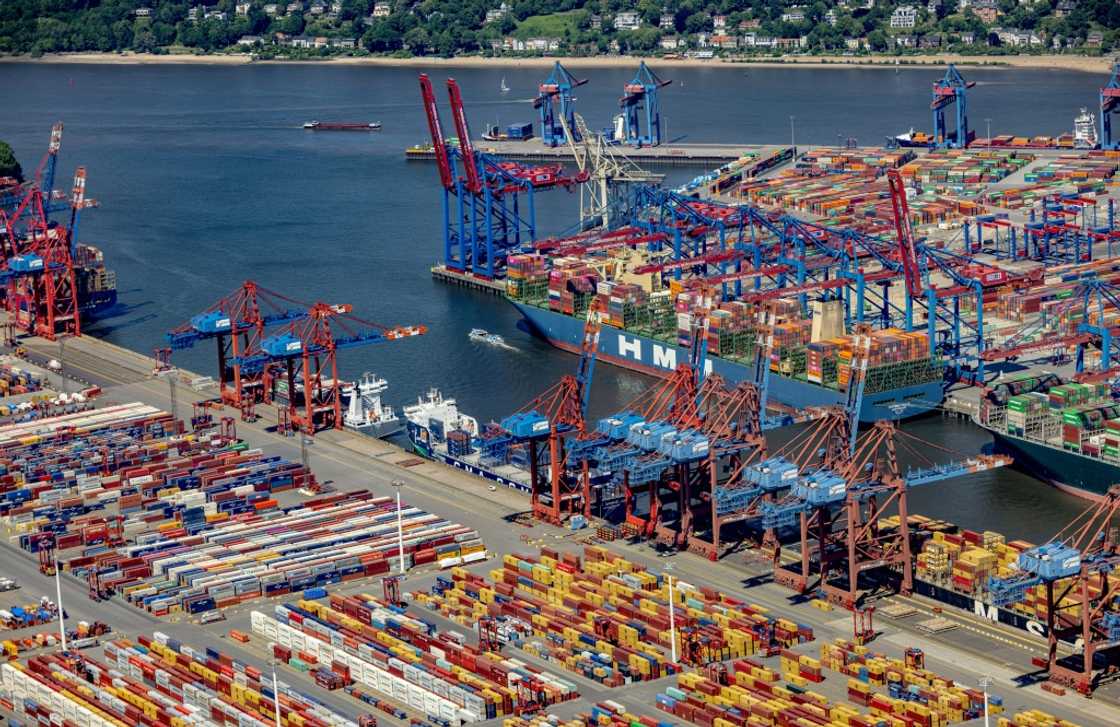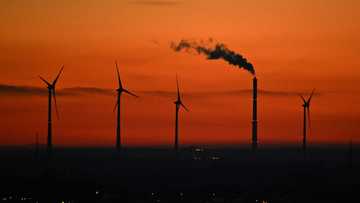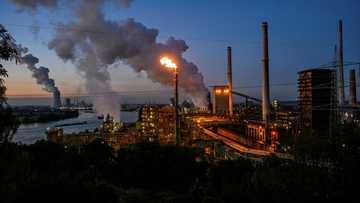European businesses brace for Trump return

Source: AFP
The return of Donald Trump and his protectionist agenda to the White House will likely rock US trade relations with the world, including Europe.
Here is a look at how sectors of the European economy could be affected after Trump pledged 10 to 20 percent tariffs on imported goods from everywhere except China, which would face a 60 percent duty:
Tough road for cars
More than one million new vehicles cross the north Atlantic every year, according to the trade association uniting European auto manufacturers.
German carmakers are particularly exposed as the United States is its second export market after China, where they are already reeling from falling sales.
German auto manufacturer association VDA warned Wednesday that "any change in the framework conditions can affect the economic situation of the industry and thus also employment in Germany, but also in the USA."
PAY ATTENTION: Legit.ng Needs Your Help! Take our Survey Now and See Improvements at LEGIT.NG Tomorrow
That is because automakers have factories in the United States that would help them avoid extra levies.
BMW head Oliver Zipse noted that his group has a large production facility in South Carolina, where its best-selling SUVs are assembled, proving "some natural cover" against possible tariffs.
Francois Roudier, secretary general of the International Organization of Motor Vehicle Manufacturers, echoed that sentiment.
"Trump will not crack down on foreign automakers established in the South," he said. "The Germans already have factories there; they will be encouraged to manufacture vehicles there."
Bad for chemicals?
The chemical industry, dominated by German giants such as Bayer and BASF, also faces an uncertain future in the United States.
The United States is the most important export market for German chemical and pharmaceutical products outside the EU.
France, for its part, exported more than 17 percent of its pharmaceutical products to the United States in 2022, its largest market outside Europe.
"We find that the pharma sector is particularly exposed, especially in Ireland, Switzerland, Belgium, Denmark and the UK, but we do not expect a trade shock on their products," according to experts at Allianz.
Bad taste for food
Europe's agri-food business has bad memories from the first Trump term, when he imposed 25 percent tariffs on wine, cheese and cognac.
The United States is the top export destination for French wine.
France's export-dependent cognac makers, already hit by Chinese tariffs, now fret over the prospect of new US levies.
"We just took a big hit with China, and now it's the United States," said Sabine de Witasse, who took over one of the last family-run cognac operations using a wood-fired boiler in the southwest region of Charente 30 years ago.
"My main client conducts almost all their business internationally, in China and the United States, so there will inevitably be repercussions," she said.
Spain's olive oil makers, the world's top exporters, were hit with additional tariffs during the first Trump presidency.
The World Trade Organization deemed the tariffs illegal in 2021 but the United States has yet to follow the WTO ruling.
Spanish olive oil exports have tumbled by 70 percent since 2019.
Energy under fire
Trump's victory will be a boon for the oil and gas industry while possibly hurting growth of renewable energy.
"Anyone who's into renewables, and Europe is a lot more than the US on that, will suffer," said Antonio Fatas, economy professor at the French business school Insead.
"I think there's going to be much less demand from the US from these type of services," he said.
Trump is particularly opposed to offshore wind farms.
"One of the points that obviously we have in mind when we consider the new administration is really offshore wind," said Catherine MacGregor, chief executive of French energy firm Engie.
Engie has three offshore wind projects under development in the United States.
"Potentially one could imagine that a moratorium could be put in place. And we'll have to see," she said.
But, she added, "we believe this is something that obviously Engie can live through."
PAY ATTENTION: Сheck out news that is picked exactly for YOU ➡️ find the “Recommended for you” block on the home page and enjoy!
Source: AFP






